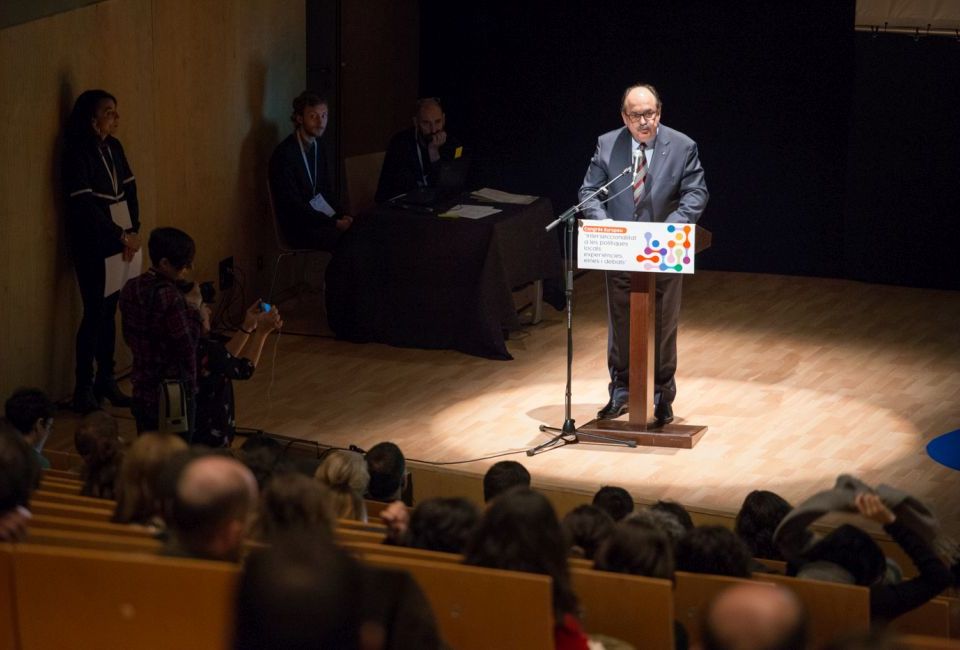
300 people attend the closing conference of the "Connected Equalities" project, with the participation of the CEIG
Around 300 people participated in the European congress on "Intersectionality in local policies: experiences, tools and debates" organised by Terrassa Municipal Council last Wednesday. The conference was the culmination of the "Connected Equalities" project, which was organised by the council with the University of Vic - Central University of Catalonia (UVic-UCC) through the Centre for Interdisciplinary Gender Studies (CEIG) and institution CEPS Projectes Socials. The congress mainly brought together professionals from government and academia, but was also attended by representatives of institutions and companies.
The rector of the UVic-UCC, Josep-Eladi Baños, participated in the opening ceremony of the congress, where he advocated the potential of the intersectional perspective, which "can be very useful when designing public policies which are better suited to people's situations in the first instance, but also to the situation in each social sector, each district and each municipality." According to Baños, the intersectional point of view "provides a much more rigorous and sophisticated perspective on reality" and is "an essential perspective in complex societies, as almost all of them are today." For this reason, he said, "we are proud to be part of this project for the future and to be able to make our contribution in the sphere of research and knowledge transfer, to achieving a fairer society that puts greater focus on people and their needs."
This speech was followed by round table discussions, presentations and workshops led by international specialists, in which intersectional experiences applied to other countries were presented, and discussions about the application of this theoretical approach to different areas of public policy took place. The director of the CEIG, Gerard Coll-Planas, participated in one of the round table discussions, which reviewed the "Connected Equalities" project and the learning, potentialities and limits that it has created. All the conclusions of the project will be compiled in a document and a series of tools to be published by Terrassa Municipal Council this spring, according to an announcement by the Deputy Mayor Eva Candela at the closing session of the congress. This material will be made available to all the cities and local governments in Europe that are interested in this experience.
Miquel Missé, the organiser of the project "Polyhedral views on gender violence" by the UVic-UCC and the Open University of Catalonia, took part in the round table discussion on "Searching for new ways of participating and intervening with an intersectional perspective."
Intersectionality is a theoretical approach that takes into account the various risk factors of discrimination that can converge in an individual, and how to address those combinations of factors. This approach aims to make a transition from the current paradigm, in which different discrimination factors are addressed individually. This trend is becoming increasingly widespread in the design of inclusive policies, but few experiences are at present using it in Europe. In this context, the project "Connected Equalities" began in January 2018 as a pioneering initiative to implement the intersectional approach to equal treatment and non-discrimination policies in the town of Terrassa.